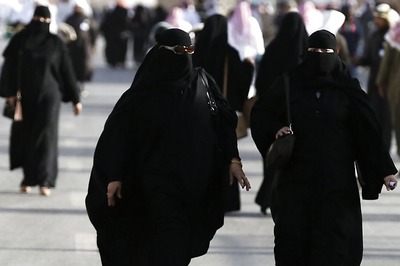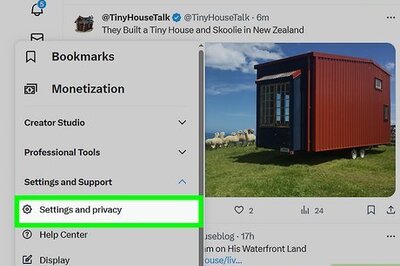
views
A Delhi court has dismissed an application by former JNU student leader Umar Khalid, arrested under the stringent anti-terror law Unlawful Activities (Prevention) Act, seeking permission to meet his family during his police custody. Khalid is in police custody for 10 days, till September 24, in a case related to the large conspiracy in the communal violence in north east Delhi in February.
He was arrested on September 13 and the next day the court allowed police to interrogate him in its custody saying it was a fit case for police custody remand. The cops had said they wanted to confront him with documents running into 11 lakh pages. Additional Sessions Judge Amitabh Rawat dismissed his application seeking permission to meet his family members saying there were no merits in it.
The counsel for the accused (Khalid) had made specific request for allowing the meeting time of accused with the counsel during police custody remand and the same was allowed for every day for 30 minutes during the entire police custody remand. Counsel for the accused is meeting the accused every day during the remand in terms of the order dated September 14. There was also an apprehension of safety raised by the counsel for the accused and thus a specific direction was also given to the concerned DCP (Deputy Commissioner of Police) to ensure the safety of the accused. In the totality of facts and circumstance of the case, I see no merit in the application, and accordingly, the application is dismissed, the judge said in his order passed on September 19.
In his application filed through his counsel, Khalid stated that verbal assurance was given by the police at the time of remand that he would be allowed to meet his family but they were not being permitted. During the hearing, his counsel told the court that since the police custody remand was extraordinarily long, he should not be deprived of meeting with his family or friends.
The application sought permission for the accused to meet his family on at least two days for a period of 30 minutes each day. The investigating officer in his reply to the application stated that as per the directions of the court Khalid has been allowed to meet his counsel everyday.
He further claimed that during his police remand the former JNU student leader was being confronted with huge data on a regular basis and he was not co-operating. The police said that he was also being thoroughly interrogated on a daily basis regarding his alleged involvement in the conspiracy of riots and the meeting of his family members may influence the interrogation and could be a hindrance.
The IO said that Khalid was already meeting with his counsel and if he has to convey any message to his family members, he can convey that through his lawyer. His lawyer argued that the period for meeting with his family may be interchanged partially with his meeting time.
Police had earlier told the court that Khalid has been allegedly found actively involved behind the conspiracy hatched in setting up protests against the Citizenship Amendment Act (CAA) at various sites in Delhi. During anti-CAA protests, he had hatched conspiracy with other conspirators and different radical student groups against the government of India in connivance with other radical groups, police had alleged.
His mobile phone was already seized in the case and more than 40GB data was extracted by the Computer Emergency Response Team (CERT-in), they had said. Khalid’s lawyer had opposed the remand application saying he was not in Delhi during February 23-26, when the riots took place.
He had said the accused has already been interrogated twice in the case, first on July 31 for five hours and then on Sunday for about 12 hours. He also been booked for the offences of sedition, murder, attempt to murder, promoting enmity between different groups on grounds of religion and rioting.
The accused had given provocative speeches at two different places and appealed to the citizens to come out on streets and block the roads during the visit of US President Donald Trump to spread propaganda at international level about how minorities in India are being tortured, the FIR alleged. Communal clashes had broken out in northeast Delhi on February 24 after violence between citizenship law supporters and protesters spiralled out of control leaving at least 53 people dead and around 200 injured.


















Comments
0 comment